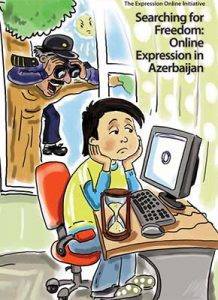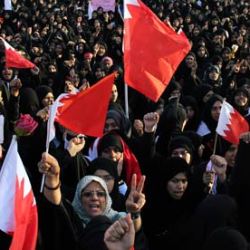Free expression in the face of violence
The Innocence of Muslims controversy put a spotlight on whether offensive online content should be censored or criminalised, as violence in Egypt, Libya and beyond meant many were tempted to argue for the removal of the video from the web.
Most states have laws to control clear and direct incitements to violence; but causing offence is neither an incitement to violence nor a reason to respond with violence. Yet since the initial protests, many countries have queued up to ask Google to block the offending video. Google initially blocked it in Egypt and Libya without even a government request, and then unblocked it.
Should companies, rather than governments, ever be the censors — arbiters of acceptability? Is it more palatable if companies are served with court orders to block access to Internet content? Or that, in keeping with its policy to abide by local laws, Google blocked the video in India and Indonesia because it was ruled illegal?
But more importantly, has a clear line been drawn between the direct incitement to violence (which should absolutely not be protected as free speech) and whether people choose to respond with violence to something they find offensive?
Rwanda is often cited as a case where the balance between safeguarding free speech and preventing violence is particularly relevant, given the severe ethnic conflicts resulting in the 1994 genocide following callings for violence. Local officials and government-sponsored radio incited ordinary citizens to kill their neighbours, and those who refused to kill were often murdered on the spot. The genocide-inciting radio broadcasts shouldn’t have been allowed. There is a clear dividing line.
But The Innocence of Muslims is not in the same category. And if Internet censorship is used because there is crowd violence — and in anticipation of violence, where does it end?
“The big story here is the crack-down on the Internet” William Echikson told me in a telephone interview from Brussels. “The pressures have grown dramatically. And we are doing our best to protect free expression. ”
Echikson is Head of Free Expression Policy and PR, Europe, Middle East & Africa at Google.
According to different reports, Innocence of Muslims was also blocked in India, Indonesia and Saudi Arabia as a result of court orders. Google also blocked the video in Malaysia after receiving an official complaint from the Communications and Multimedia Commission, according to AFP. Reporters without Borders said the video was also blocked in Kyrgyzstan, Kazakhstan and Russia via court orders on grounds of being “extremist”. And in Pakistan, it was blocked by the Prime Minister Raja Pervez Ashraf, who issued a directive to the Ministry of Information Technology.
The key, original censors here seem to be violent demonstrators and restrictive governments. Of the 150 countries where Google operates, in about 30 its service has been “affected one way or the other”, adds Echikson.
Governments are indeed cracking-down on the web, either because they already censor blasphemous and other offensive material (even without any likelihood of violence) or because they are giving in to actual or threatened violence. But if governments continue doing that, couldn’t it become an incentive for any fanatical group to threaten or act violently, and get censorship as a result? Isn’t this very similar to the mechanisms of terror: you terrorise or hurt one to scare a thousand?
That is why it is so vital that everyone understands the difference between incitement to violence, and violence in response to offense, an idea that, weeks after the video furore, has vanished from the agenda.
A country such as China may shed some light on where we are heading.
After a series of huge protests and ethnic riots (many of which were organised using instant messaging services, chat rooms, and text messages), China is reported to have intensified its efforts to neutralise online criticism. According to Amnesty, China has the largest number of imprisoned journalists and cyber-dissidents in the world, while the number of “Internet police” is rumoured to be higher than 30,000.
The reason for all this political censorship.
Many of the violent reactions to The Innocence of Muslims were for political reasons, using offence as an excuse. In fact, some analysts and US officials have reported that Benghazi attack of 11 September, which killed the US ambassador to Libya, appeared to have been planned in advance, and had nothing to do whatsoever with the video.
So for the Internet, where does all this end? With the annihilation of McLuhan’s global village and the beginning of a new era of of separate, isolated, over-scrutinised, parochial Internets.
Miren Guitierrez is editorial director of Index on Censorship



